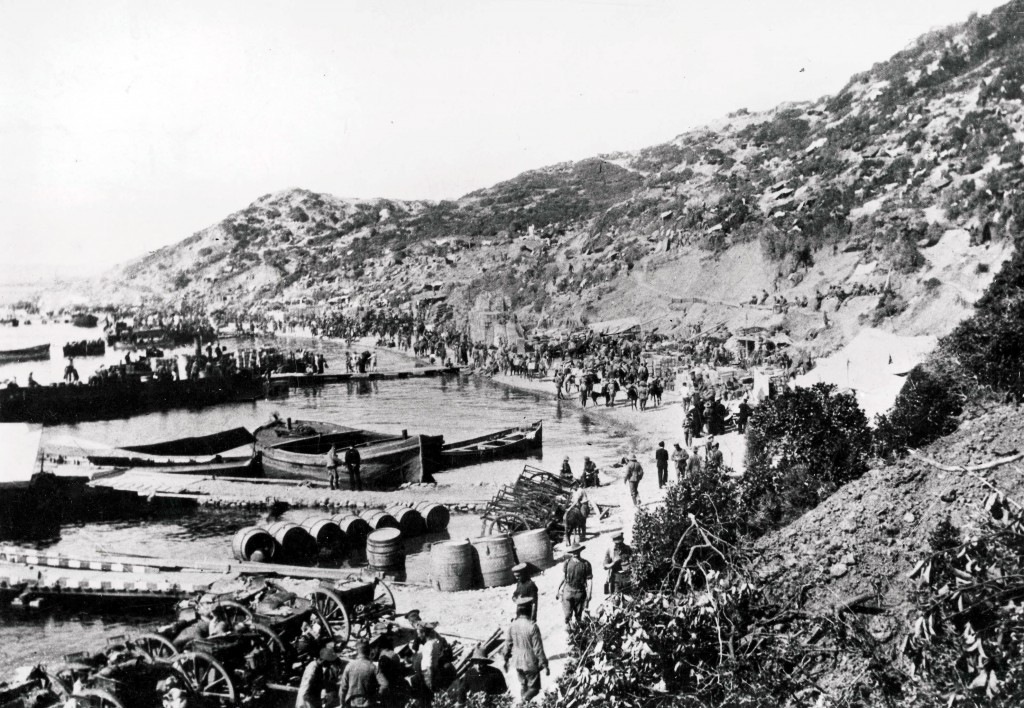On January 8, 1916, Allied forces stage a full retreat from the shores of the Gallipoli Peninsula in Turkey, ending a disastrous invasion of the Ottoman Empire.
The Gallipoli Campaign resulted in 250,000 Allied casualties and greatly discredited Allied military command. Roughly an equal number of Turks were killed or wounded.
In early 1915, the British government resolved to ease Turkish pressure on the Russians in the Caucasus front by seizing control of the Dardanelles channel, the Gallipoli Peninsula, and then Istanbul. From there, pressure could be brought on Austria-Hungary, forcing the Central Powers to divert troops from the western front. The first lord of the Admiralty, Winston Churchill, strongly supported the plan, and in February 1915 French and British ships began bombarding the Turkish forts guarding the Dardanelles.
Bad weather interrupted the operation, and on March 18, six English and four French warships moved into the Dardanelles. The Turks, however, had used the intervening time wisely, setting mines that sank three Allied ships and badly damaged three more. The naval attack was called off, and a larger land invasion was planned.
Beginning April 25, British, Australian, and New Zealand troops landed on the Gallipoli Peninsula, while the French feinted a landing on the opposite coast to divert Ottoman forces. The Australians and New Zealanders were devastated by the Turkish defenders, who were led by Mustafa Kemal, the future President Ataturk of Turkey.
Meanwhile, the British likewise were met with fierce resistance at their Cape Helles landing sites and suffered two-thirds casualties at some locations. During the next three months, the Allies made only slight gains off their landing sites and took terrible casualties.
To break the stalemate, a new British landing at Sulva Bay occurred on August 6, but the British failed to capitalize on their largely unopposed landing and waited too long to move against the heights. Ottoman reinforcements arrived and quickly halted their progress. Trenches were dug, and the British were able to advance only a few miles.
In September, Sir Ian Hamilton, the British commander, was replaced by Sir Charles Monro, who in December recommended an evacuation from Gallipoli.
In early January 1916, the last of the Allied troops escaped. As a result of the disastrous campaign, Churchill resigned as first lord of the Admiralty and accepted a commission to command an infantry battalion in France.


